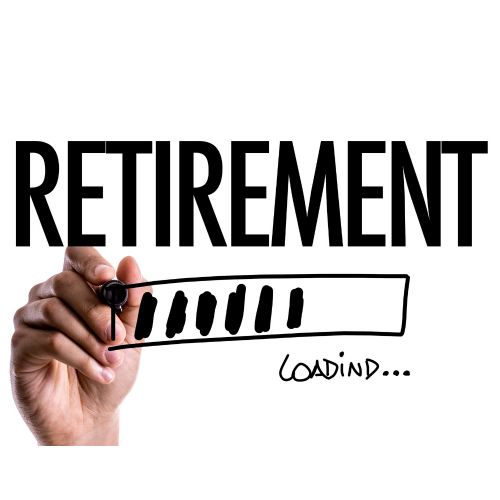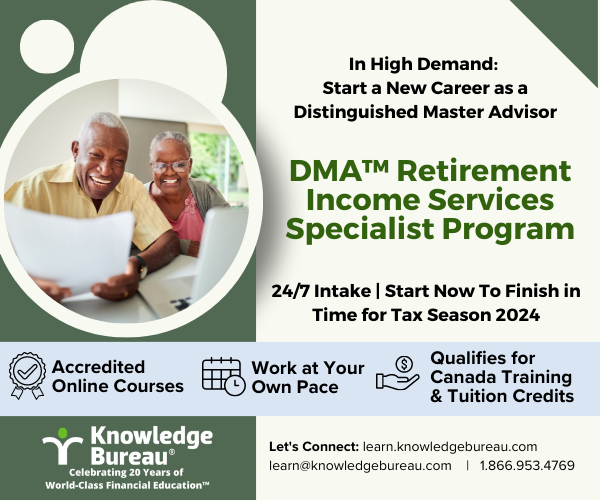Poll: Is One Co-Hort Better Prepared for Retirement?

Tax and financial advisors agree there is a retirement crisis, but the consensus was more split when our August poll question asked “The average retirement age of the self-employed is 68.4 – 5.7 years after those in the public sector; 3.7 more than in private sector. Is one co-hort better prepared for retirement than the others?” The majority at 67% agreed, but many commented that financial literacy is a contributing factor. Read on to check out the comments.
Working longer may not be about being prepared for retirement. Perhaps the self-employed person is actually enjoying their chosen career more than the employee? My husband turns 71 this year and doesn’t feel like stopping yet. And he hasn’t an employer to make the decision for him.
By Katherine Buchanan Cooper on August 28, 2023
Public Sector employees generally have good pension plans with mandatory contributions. Many DB plans are fully indexed with bridge benefits to 65. Thus, they can afford to retire sooner. I am guessing that public sector employees have less job satisfaction and want out of jobs that involve policies and procedures and annual appraisal reviews by supervisors. Self-employed worker probably have more job satisfaction and probably like to keep working at what they like to do for as long as their health allows. Self-employed have only voluntary savings and may not be as diligent at saving as they should be, which means they need more time to build up enough savings to afford to retire. Besides, self-employed people would probably feel the loss of  identity in retirement more than the public sector employees.
identity in retirement more than the public sector employees.
By Terry McBride on August 10, 2023
In my 30+ years experience, financial literacy is generally lacking across the board and most tend to spend what they make. What separates those being able to retire early from those who cannot is a Defined Benefit Pension. It lasts for life. The trend to work longer or part time in retirement is simply the reality of things for those without one. With YMPE levels increasing at an alarming rate, CPP is also becoming an unrealistic expectation for younger working Canadians in retirement so this trend to work longer will continue.
By Dawn Vader on August 09, 2023
It is in my opinion just a fact that is way harder for self-employed person to reach the maximum CPP or put money aside for RRSP or other savings. In fact lack of financial literacy makes it very hard for many self-employed people to understand the absolutely crucial facts around saving for retirement.
Public sector or private sector employees mostly have a pension and benefits, so there is a building block that they do not face separately.
Starting, running and growing a business successfully and managing all financial responsibilities including retirement saving is a hard and stressful job.
The risk taking for the self-employed is in my mind very much under evaluated and government could be more mindful of that.
By Frank Arnold on August 09, 2023
I spent time in the federal public service and can attest that, for those who can stick it out and started early enough to maximize it (35 years), can essentially stop going to work and have a similar take-home without saving anything for their retirement outside of the pension plan. So, from an income perspective, they can be very well-prepared for retirement. Self-employed people may not be as well prepared, but if they have a succession plan for their business, retiring later has definite benefits. I think this cohort may have the most difficult time adjusting unless they prepare themselves psychologically with another purpose for their lives.
By Derek T on August 09, 2023
Folks in the small private sector have the ability to set up flexible, cost-effective, gold plated pension plans for themselves and their families, but 98% of this marketplace has no clue about these solutions in part because the professionals that should bring them to their attention have little or no knowledge about them. It is a national tragedy that the lack of knowledge within the financial industry about individual pension plans, personal pension plans and retirement compensation arrangements means that small business owners are left behind their counterparts in the Public Sector when it comes to pension coverage.
By Jean Pierre Laporte on August 04, 2023
Not necessarily. It much depends on what kind of preparation was made for retirement. Some people are more prudent with their spending habits and provide for the rainy day i.e. retirement.
By Randolph Edmead on August 02, 2023
I think it mostly comes down to the individual, not their employment situation. While higher earners should have an easier time planning for retirement, if they manage their income, investments or savings poorly, they may not do as well as a lower income worker who does manage finances better. Public sector workers do start off with a bit of an advantage with generally better pension plans than those working in the private sector (where very often, now, there are no pensions). However, it still makes a difference in the 40+ years most of us are actively working how we manage our finances. Someone with a moderate income who saves and invests wisely and perhaps owns a house with a paid-off mortgage will be in a much better position to retire than a higher income earner without any savings and mountains of debt. Wether self-employed or employed in the public or private sector, I believe how one manages their finances has a greater bearing on when, and how comfortable, someone can retire.
By Michael Connors on August 02, 2023
When I was an employee, I was struggling to make ends meet, and my employer provided no pension or retirement benefits. I knew of self-employed business owners who were regularly buying new houses, cars, boats, and vacations overseas. So, I decided to become self-employed. Now I see that Canada’s laws and economic systems are heavily weighted in favor of employees (particularly if your employer provides pension benefits). Those business owners who are buying things left and right (and investing for retirement) are often unaware of the business laws and tax laws in Canada, and are not properly reporting income, and/or improperly using their businesses for personal benefit (i.e. restaurant owners where 90% of the owner’s family’s meals come from the restaurant’s inventory). Those of us who actually learn what the rules are, and play by them, can’t afford to save for retirement. Doesn’t matter if you are a public sector employee or private sector employee (unless you are uneducated and working for minimum wage) - you will retire earlier than a self-employed person doing the same job.
By Nelson Selinger on August 02, 2023
A lot of the public sector have really good defined benefit pensions that many in the private sector and self-employed can only dream about. So the public sector, as a whole, seems to be the winner by default.
The basic retirement plan for well paid public sector employees is “pay off your mortgage” and yet, some take too much debt with them into retirement.
By Dan Allen on August 02, 2023
In most small business they are continually trying to survive. Retirement savings for many is last on the list. Also, many business I know have issues with succession. Usually, heath is the determining factor for retirement
By Tony Caron on August 02, 2023
The poll responses point to high demand for Retirement Income Services from Designated Specialists. Start a career as a Distinguished Master Advisor (DMA™).